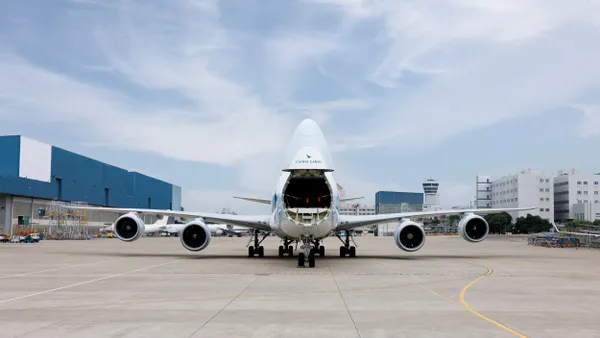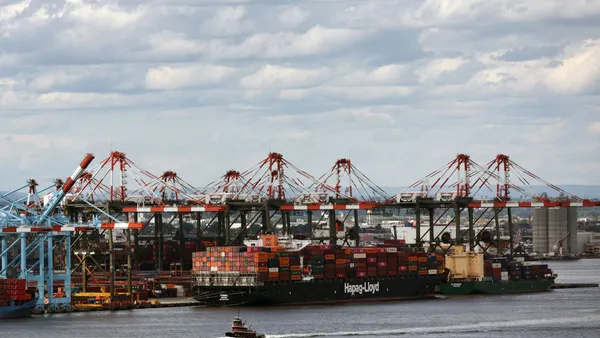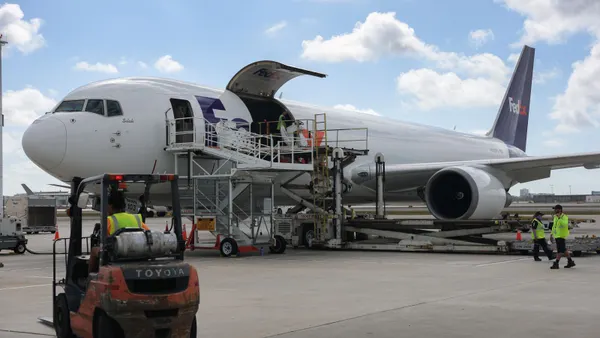Dive Brief:
- FedEx will cut its Express capacity after peak season by retiring or parking multiple planes in its fleet as a result of weak demand for air cargo, executives said on the company's 2020 first-quarter earnings call Tuesday.
- "We expect the current softness in air cargo demand to continue into calendar year 2020," said COO Raj Subramaniam. "As such, we will take action to reduce our intercontinental flights after our peak season to better match supply to demand. We have already decreased U.S. domestic flight hours and we will be aggressively looking for additional opportunities."
- CEO Fred Smith said the company will retire at least 20 MD 10-10 aircraft over the course of the current and next fiscal year, it is "highly likely" to retire 10 more A310 aircraft later this year, and will park the equivalent of seven MD-11 planes this fiscal year.
Dive Insight:
FedEx lowered its 2020 earnings forecast in documents filed before the earnings call. The company blamed the current global economic environment and the "loss of FedEx Ground business from a large customer," a press release said. On the call, executives confirmed this customer was Amazon.
"Our performance continues to be negatively impacted by a weakening global macro environment driven by increasing trade tensions and policy uncertainty," Smith said in a statement released before the call.
The company said it is planning to cut costs to account for the weak trade environment, which includes downsizing the FedEx Express network. FedEx CFO Alan Graf also said modernizing the Express fleet will lower costs in the long run as the result of "enhanced reliability, reduced maintenance costs, and improve[d] fuel efficiency."
In a research note released last week, UBS said weak airfreight demand in Asia and Europe, and the loss of Amazon parcel volume, would be headwinds for Express.
FedEx announced in June it would not renew its Express contract with Amazon. In August, it was reported that the Ground contract between the two companies would also not be renewed.
Amazon officially listed logistics companies as competition in its financial filings earlier this year. On this call, Smith finally confirmed FedEx also sees Amazon as its competition.
"We basically compete in an ecosphere that's got five entities in it," he said. "There's UPS, there's DHL, there's the U.S. Postal Service, and now, increasingly, there is Amazon. That's who we wake up every day, trying to think about how we compete against and give the best services to our sales force."
Smith confirmed "near-term profits" would be affected by the loss of Amazon's volume.
"However, we have closed additional business to replace this traffic, which is being on-boarded and we are taking out significant costs which were unique to Amazon's requirements," he said on the call.
FedEx will deliver seven days a week throughout peak season, which will become a standard service offering from then onwards.
"We expect record-breaking volumes in multiple Mondays during the peak season," Subramaniam said on the call. "E-commerce growth continues, which in turn drives strong demand for residential delivery."
FedEx announced earlier this week it would not add residential delivery surcharges during peak season, but plans to increase rates and delivery surcharges beginning Jan. 6, 2020.














